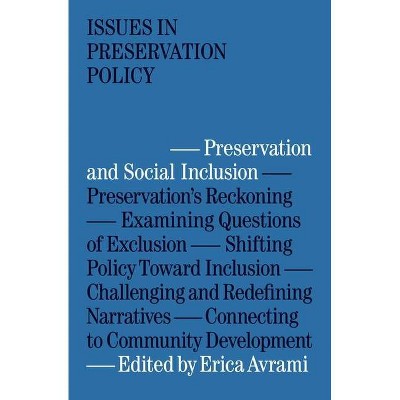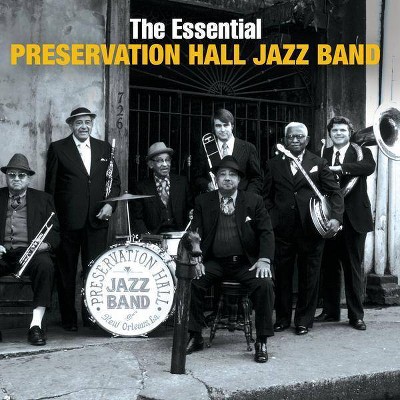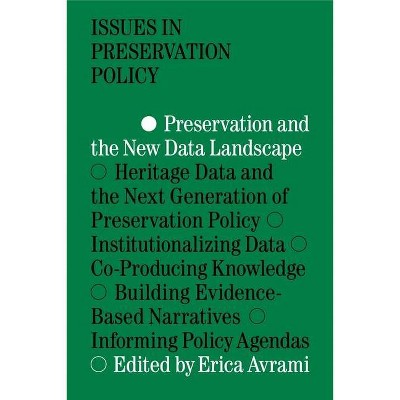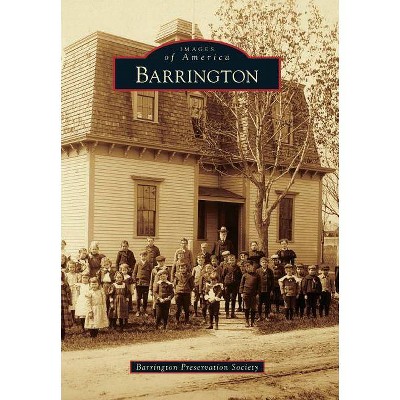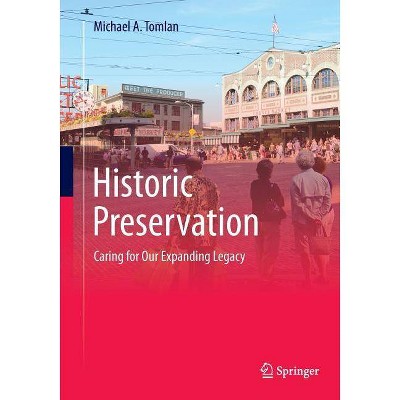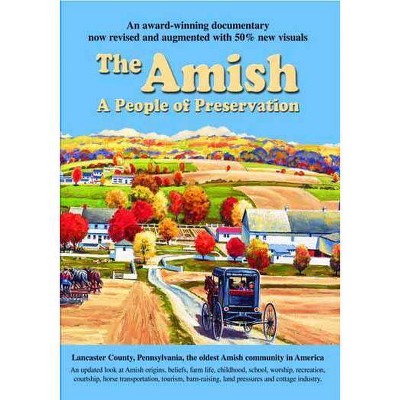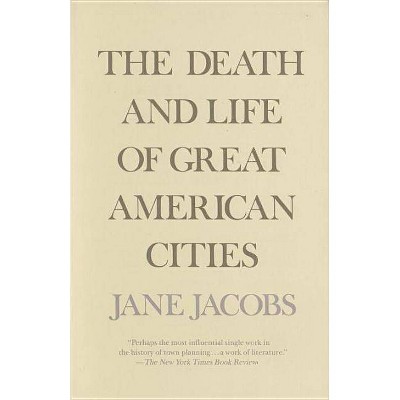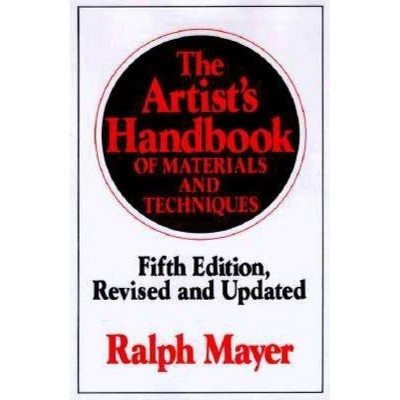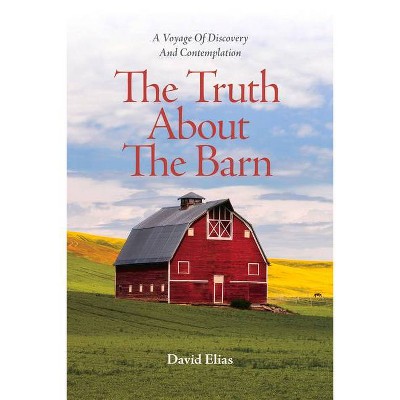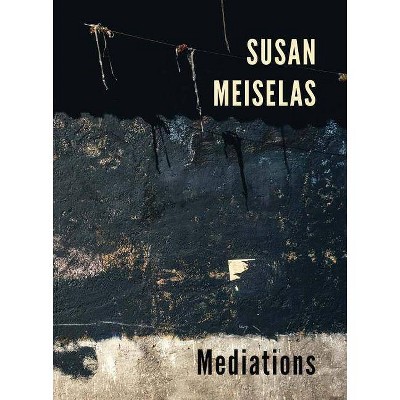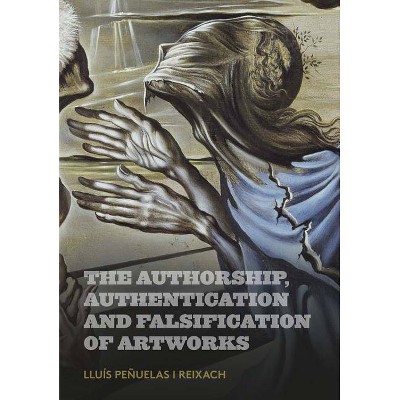Dictionary of Building Preservation - (Preservation Press S) by Ward Bucher (Paperback)
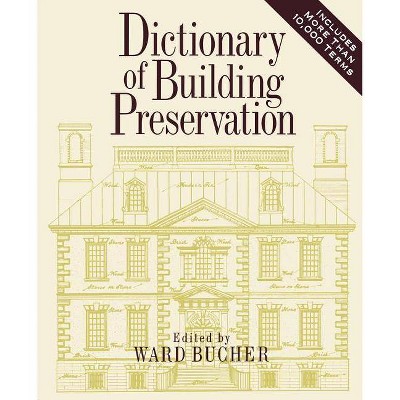
Similar Products
Products of same category from the store
AllProduct info
<p/><br></br><p><b> Book Synopsis </b></p></br></br>Most historic buildings are owned by private citizens who havelittle or no background in building preservation or its alliedfields. These owners--as dedicated as they are to preserving orrefurbishing their property--often feel at a disadvantage whencommunicating with professionals well-versed in the complex jargonof this multidisciplinary field. The Dictionary of BuildingPreservation provides easy access to this terminology and helps thenonspecialist to understand and communicate with building anddesign professionals, preservation groups, government agencies, attorneys, and others concerned with building preservation. <p/> Containing more than 10,000 entries that cover the entire breadthof building preservation in North America, this is the best sourceavailable for definitions of terms used for buildings, parts ofbuildings, the development of historic structures, technicalstandards, relevant legal terminology, and preservation practice.It provides detailed information on various historical styles andfashions, structural, mechanical, and electrical systems, andcurrent restoration techniques. In the Dictionary of BuildingPreservation, readers will find<br> * Straightforward definitions that include preservation context, word origin, and national and regional vernaculars<br> * Many terms that do not appear in any other dictionary<br> * Cross referencing that allows readers to move from the general tothe specific or vice versa<br> * Nearly 400 illustrations--many rare-edition prints and linedrawings from the Historic American Buildings Survey as well asfirst edition Architectural Graphic Standards technical drawings<br> * Both modern and obsolete spellings along with an indication ofthe period in which the term was most commonly used <p/> Compiled by a practicing restoration architect, this is the idealreference resource for owners of historic homes, preservationistsand restoration consultants, architecture buffs, urban planners, land-use attorneys, architects and architectural historians, andanyone involved in building renovation, community preservation, orlandmark designation. <p/> building types, building parts, construction methods, raw andmanufactured building materials, products and finishes, structuralsystems, architectural styles, room names, Canadian and U.S.national preservation law and administration, government agenciesand preservation organizations, National Register designations, building codes, real estate development, conservation andrestoration treatments, specialty items, archeological terms, abbreviations and preservationist jargon, building types<p/><br></br><p><b> From the Back Cover </b></p></br></br>Most historic buildings are owned by private citizens who have little or no background in building preservation or its allied fields. These owners--as dedicated as they are to preserving or refurbishing their property--often feel at a disadvantage when communicating with professionals well-versed in the complex jargon of this multidisciplinary field. The Dictionary of Building Preservation provides easy access to this terminology and helps the nonspecialist to understand and communicate with building and design professionals, preservation groups, government agencies, attorneys, and others concerned with building preservation. <p>Containing more than 10,000 entries that cover the entire breadth of building preservation in North America, this is the best source available for definitions of terms used for buildings, parts of buildings, the development of historic structures, technical standards, relevant legal terminology, and preservation practice. It provides detailed information on various historical styles and fashions, structural, mechanical, and electrical systems, and current restoration techniques. In the Dictionary of Building Preservation, readers will find</p> <ul> <li>Straightforward definitions that include preservation context, word origin, and national and regional vernaculars</li> <li>Many terms that do not appear in any other dictionary</li> <li>Cross referencing that allows readers to move from the general to the specific or vice versa</li> <li>Nearly 400 illustrations--many rare-edition prints and line drawings from the Historic American Buildings Survey as well as first edition Architectural Graphic Standards technical drawings</li> <li>Both modern and obsolete spellings along with an indication of the period in which the term was most commonly used</li> </ul> <p>Compiled by a practicing restoration architect, this is the ideal reference resource for owners of historic homes, preservationists and restoration consultants, architecture buffs, urban planners, land-use attorneys, architects and architectural historians, and anyone involved in building renovation, community preservation, or landmark designation.</p> <p>building types, building parts, construction methods, raw and manufactured building materials, products and finishes, structural systems, architectural styles, room names, Canadian and U.S. national preservation law and administration, government agencies and preservation organizations, National Register designations, building codes, real estate development, conservation and restoration treatments, specialty items, archeological terms, abbreviations and preservationist jargon, building types</p><p/><br></br><p><b> About the Author </b></p></br></br>About the editor <p/> WARD BUCHER, AIA, is a practicing restoration architect in theWashington, D.C. area. He has written several articles for OldHouse Journal on house heating systems and the structural analysisof historic buildings. An active member of the American Instituteof Architects and the Association for Preservation Technology, hehas done preservation work in Charleston, South Carolina;Albuquerque, New Mexico; and Nova Scotia.
Price History
Price Archive shows prices from various stores, lets you see history and find the cheapest. There is no actual sale on the website. For all support, inquiry and suggestion messagescommunication@pricearchive.us
